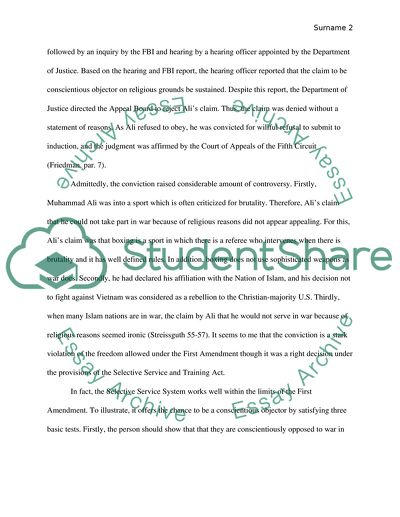Cite this document
(Muhammad Ali alias Cassius Marcellus Clay Jr., an American Professiona Essay, n.d.)
Muhammad Ali alias Cassius Marcellus Clay Jr., an American Professiona Essay. Retrieved from https://studentshare.org/english/1824134-muhammad-ali-draft-resistance
Muhammad Ali alias Cassius Marcellus Clay Jr., an American Professiona Essay. Retrieved from https://studentshare.org/english/1824134-muhammad-ali-draft-resistance
(Muhammad Ali Alias Cassius Marcellus Clay Jr., an American Professiona Essay)
Muhammad Ali Alias Cassius Marcellus Clay Jr., an American Professiona Essay. https://studentshare.org/english/1824134-muhammad-ali-draft-resistance.
Muhammad Ali Alias Cassius Marcellus Clay Jr., an American Professiona Essay. https://studentshare.org/english/1824134-muhammad-ali-draft-resistance.
“Muhammad Ali Alias Cassius Marcellus Clay Jr., an American Professiona Essay”, n.d. https://studentshare.org/english/1824134-muhammad-ali-draft-resistance.


